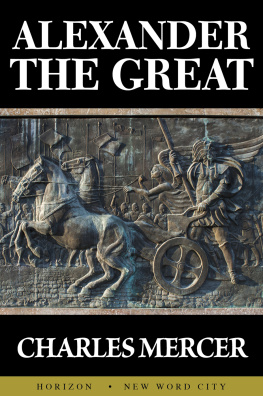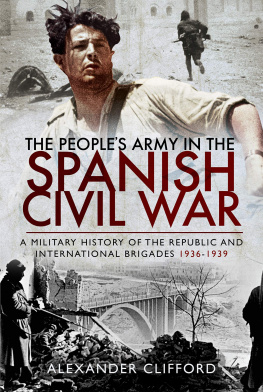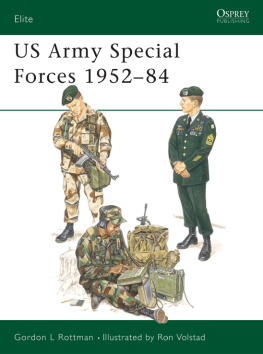This edition is published by PICKLE PARTNERS PUBLISHINGwww.picklepartnerspublishing.com
To join our mailing list for new titles or for issues with our books picklepublishing@gmail.com
Or on Facebook
Text originally published in 1898 under the same title.
Pickle Partners Publishing 2014, all rights reserved. No part of this publication may be reproduced, stored in a retrieval system or transmitted by any means, electrical, mechanical or otherwise without the written permission of the copyright holder.
Publishers Note
Although in most cases we have retained the Authors original spelling and grammar to authentically reproduce the work of the Author and the original intent of such material, some additional notes and clarifications have been added for the modern readers benefit.
We have also made every effort to include all maps and illustrations of the original edition the limitations of formatting do not allow of including larger maps, we will upload as many of these maps as possible.
RECOLLECTIONS OF THIRTY-NINE YEARS IN THE ARMY
GWALIOR AND THE BATTLE OF MAHARAJPORE, 1843
THE GOLD COAST OF AFRICA, 1847-48
THE INDIAN MUTINY, 1857-58
THE EXPEDITION TO CHINA, 1860-61
THE SIEGE OF PARIS, 1870-71 ETC.
BY
SIR CHARLES ALEXANDER GORDON, K.C.B.
The story of my life,
From year to year, the battles, sieges, fortunes
That I have passed.
Othello, Act 2, Sc. 3
CHAPTER I
1841-1842. GAZETTED TO THE BUFFS. ARRIVE IN INDIA.
First Affghan WarChathamFort PittSupernumerariesHow appointedGazettedBreaking inOrders of readinessShip inspectedEmbarkFirst days on boardTypical charactersWarmthOur tubReduced allowancesConditions on boardAmusements for menFor officersSpeaking shipsA dismasted vesselFirst sense of responsibilityIndisciplineNeptune On boardTable BayShore boatsCape TownVicinityOfficial dutiesThe ship Lloyds An old friendThe 25th RegimentThe contractorBotanic GardenEastwardMutinous crew--Land ahoyTerrible newsThe Hooghly.
IN 1841 British and Indian troops occupied Cabul; but throughout Affghanistan the aspect of things political was alarming. In Scinde the Ameers were defiant and hostile. The Punjab in a state of disturbance and convulsion; law and order had ceased; isolated murders and massacres instigated by opposing claimants to the throne left vacant in 1839, and since that time occupied by a prince against whom the insurrectionary movement was now directed by chiefs, some of whom were inimical to British interests.
Military reinforcements on a large scale were dispatched from England. Great, accordingly, the activity at Chatham, then the only depot whence recruits and young officers were sent to regiments serving in India. The depot then at Warley was for soldiers of the Honourable Companys service.
Into the General Hospital at Fort Pitt were received military invalids from India as from all other foreign stations. There they were treated for their several ailments; thence discharged to join their respective depots, or from the service on such pensions as they were deemed entitled to by length of service and regimental character. Then the period of engagement was for life, otherwise twenty-one years in the infantry, twenty-four in the mounted branches.
There young medical men nominated for appointment to the army underwent a course of training, more or less long, according to individual circumstances, for the special duties before them; meanwhile they received no pay, wore no uniform; they dined at mess, paid mess subscriptions, and were subject to martial law.
Professional education included requirements for diplomas, and in addition, special subjects relating to military medicine, surgery, and management of troops. Nominations for appointments were given by old officers or other men whose social position was a guarantee in regard to character and fitness of their nominees for the position sought by them; certificates by professors and teachers under whom they studied were submitted to the responsible authority {1} at the War Office, with whom rested their selection. Thus in effect a combined system of patronage and competition was in force.
With anxious interest a small group of expectants awaited the arrival of the coach by which in those days afternoon letters and evening papers from the metropolis were conveyed. Eagerly was The Gazelle scanned when, close upon the hour of midnight, the papers were delivered. Great was the pride and rejoicing with which some of our number read the announcement relating to them; great the disappointment of those who were not so included. The regiment to which I had the honour of being appointed was the 3rd, or Buffs, the depot of which formed part of the Provisional Battalion then occupying Forton Barracks. {2}
The duties assigned to young medical officers were unimportantinitiatory rather than definite in kind. Careful watch and superintendence on the part of official seniors gave us an opportunity of learning various points relative to practice, as well as to routine and discipline, to be turned to accountor otherwisein the career upon which we were entering. But the process of breaking in was not without its disagreeables. Courtesy towards young officers on the part of their seniors, military or medical, was a quality rare at Chatham, but where met with in isolated instances was the more appreciated, and remembered in subsequent years. The system of training in force tended rather to break than bend the sapling.
Thus did three months pass away. Then came an order of readiness to embark with the detachment of recruits next to sail. Although about to proceed with those pertaining to what was now my own regiment, official regulations required that my appointment to charge of them should have the authority of The Honourable Court of Directors, and that to obtain it, personal application must be made at their old historical house in Leadenhall Streeta formality which was gone through with ease and success. This is what the appointment in question implied:Not only did I receive the free passage to which I was entitled, my daily rate of pay {3} running on the while, minus 5 deducted for messing, but was privileged to occupy the second best cabin on board, and at the end of the voyage to receive in rupees a sum equivalent to fifteen shillings per head for officers and soldiers landed, and half a guinea for each woman and child. In those golden days the sterling value of the rupee was at par.
The ordeal of inspection was duly performed, the requirements on board declared satisfactory, the formal report to that effect transmitted to the authorities. My personal knowledge of those requirements was absolutely nil. How much more definite that of other members of the Inspecting Committee, was soon to be judged of. For example: side or stern ports there were none, deck ventilators being considered sufficient. Food stores comprised casks of salted beef and pork; tins of soup and bouill, potatoes and other vegetables, some dried, some tinned; pickles and lime juice, bread, otherwise hard biscuit, destined ere many weeks had elapsed to become mouldy and honeycombed by weevils. There were bags of flour, peas, and raisins; an ample supply of tobacco; also of rum and porter, to be issued to the troops as a daily ration. The water tanks and a series of casks on deck had been filledso it was saidfrom the Thames below London Bridge, when the tide was at its lowest.










